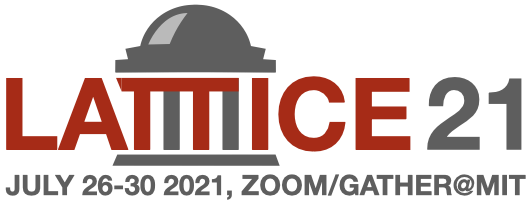Speaker
Description
General-purpose Markov Chain Monte Carlo sampling algorithms suffer from a dramatic reduction in efficiency as the system being studied is driven towards a critical point through, for example, taking the continuum limit. Recently, a series of seminal studies suggested that normalizing flows - a class of deep generative models - can form the basis of a sampling strategy that does not suffer from this 'critical slowing down'. The central idea is to use machine learning techniques to build (approximate) trivializing maps, i.e. field transformations that map the theory of interest into a 'simpler' theory in which the degrees of freedom decouple. These trivializing maps provide a representation of the theory in which all its non-trivial aspects are encoded within an invertible transformation to a set of field variables whose statistical weight in the path integral is given by a distribution from which sampling is easy. No separate process is required to generate 'training data' for such models, and convergence to the desired distribution is guaranteed through a reweighting procedure such as a Metropolis test.
From a theoretical perspective, this approach has the potential to become more efficient than traditional sampling, since the statistical efficiency of the sampling algorithm is decoupled from the correlation length of the system. The caveat to all of this is that, somehow, the costs associated with the highly non-trivial task of sampling from the path integral of an interacting field theory are transferred to the training of a model to perform this transformation. We have been investigating various schemes, based on normalizing flows, for building efficient representations of trivializing maps for $\phi^4$ theory, and (more recently) $O(N)$ non-linear $\sigma$ models. The 'naive' approach to training such models appears to suffer from an analogue of critical slowing down which unfortunately limits the scalability of this technique, although we are optimistic about the possibility of improving this situation.
